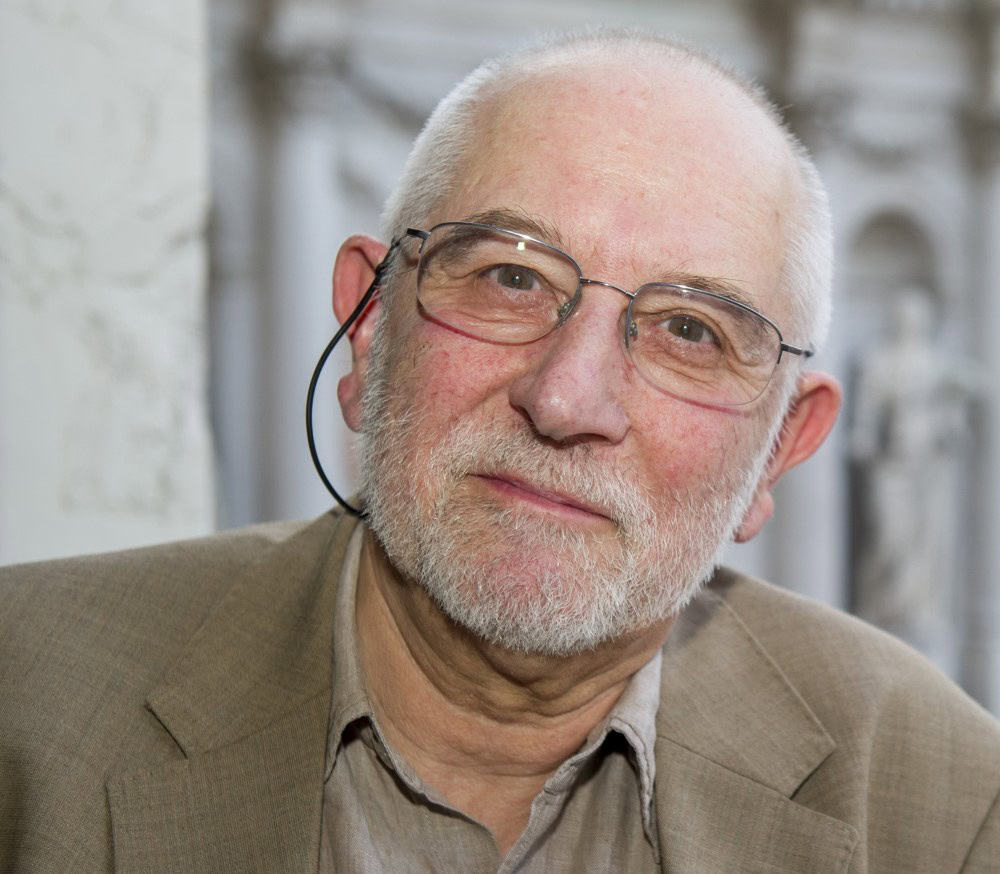
The theoretical physicist Michael Berry from the University of Bristol has won the 2025 Isaac Newton Medal and Prize for his “profound contributions across mathematical and theoretical physics in a career spanning over 60 years”. Presented by the Institute of Physics (IOP), which publishes Physics World, the international award is given annually for “world-leading contributions to physics by an individual of any nationality”.
Born in 1941 in Surrey, UK, Berry earned a BSc in physics from the University of Exeter in 1962 and a PhD from the University of St Andrews in 1965. He then moved to Bristol, where he has remained for the rest of his career.
Berry is best known for his work in the 1980s in which he showed that, under certain conditions, quantum systems can acquire what is known as a geometric phase. He was studying quantum systems in which the Hamiltonian describing the system is slowly changed so that it eventually returns to its initial form.
Berry showed that the adiabatic theorem widely used to describe such systems was incomplete and that a system acquires a phase factor that depends on the path followed, but not on the rate at which the Hamiltonian is changed. This geometric phase factor is now known as the Berry phase.
Over his career Berry, has written some 500 papers across a wide number of topics. In physics, Berry’s ideas have applications in condensed matter, quantum information and high-energy physics, as well as optics, nonlinear dynamics, and atomic and molecular physics. In mathematics, meanwhile, his work forms the basis for research in analysis, geometry and number theory.
Berry told Physics World that the award is “unexpected recognition for six decades of obsessive scribbling…creating physics by seeking ‘claritons’ – elementary particles of sudden understanding – and evading ‘anticlaritons’ that annihilate them” as well as “getting insights into nature’s physics” such as studying tidal bores, tsunamis, rainbows and “polarised light in the blue sky”.
Over the years, Berry has won a wide number of other honours, including the IOP’s Dirac Medal and the Royal Medal from the Royal Society, both awarded in 1990. He was also given the Wolf Prize for Physics in 1998 and the 2014 Lorentz Medal from the Royal Netherlands Academy of Arts and Sciences. In 1996 he received a knighthood for his services to science.
Berry will also be a speaker at the IOP’s International Year of Quantum celebrations on 4 November.
Celebrating success
Berry’s latest honour forms part of the IOP’s wider 2025 awards, which recognize everyone from early-career scientists and teachers to technicians and subject specialists. Other winners include Julia Yeomans, who receives the Dirac Medal and Prize for her work highlighting the relevance of active physics to living matter.
Lok Yiu Wu, meanwhile, receives Jocelyn Bell Burnell Medal and Prize for her work on the development of a novel magnetic radical filter device, and for ongoing support of women and underrepresented groups in physics.
In a statement, IOP president Michele Dougherty congratulated all the winners. “It is becoming more obvious that the opportunities generated by a career in physics are many and varied – and the potential our science has to transform our society and economy in the modern world is huge,” says Dougherty. “I hope our winners appreciate they are playing an important role in this community, and know how proud we are to celebrate their successes.”
The full list of 2025 award winners is available here.



